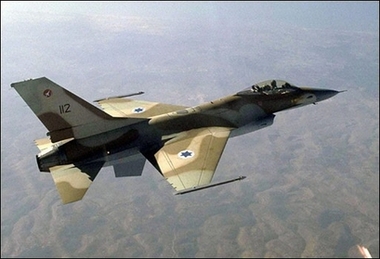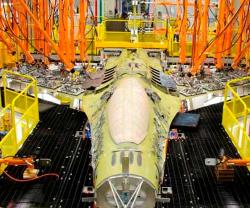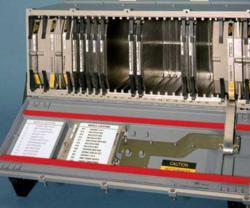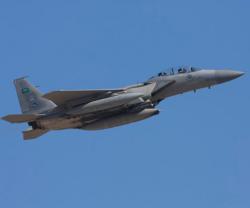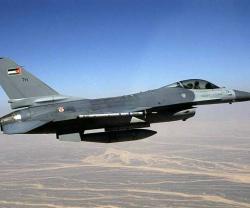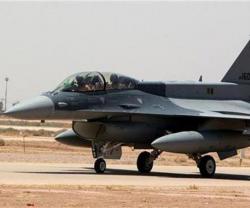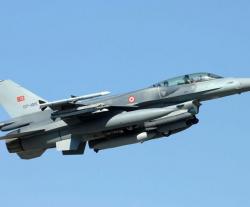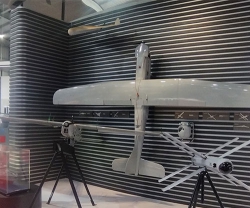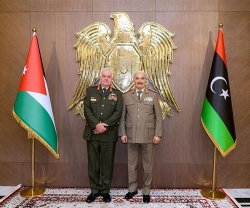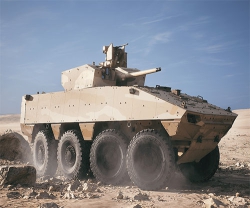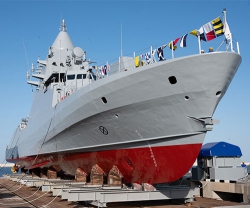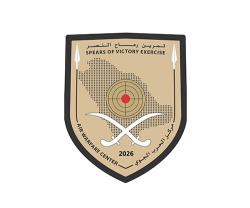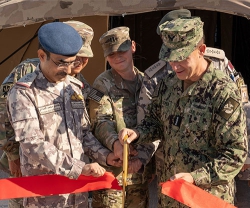The US Air Force is crafting several options designed to meet an Iraqi request for Lockheed Martin Corp F-16 fighter aircraft, a senior Air Force official said.
Whether new or refurbished, the F-16 is a potential key to fostering US and Iraqi ability to operate together in the future, said Bruce Lemkin, the Air Force's point person for international affairs.
"It is extraordinarily important," he told Reuters by telephone. "It's not just the airplane. It's the partnership that comes with it."
France, Russia, China and others have been jockeying to help fill Iraq's multibillion-dollar arms wish list, which features multi-role fighters to defend its air space after US forces are due to leave by the end of 2011.
"Flying the same airplane that we do becomes not only the centerpiece of the relationship," but aligns maintenance, logistics and operational concepts among other things, Lemkin said.
He said the sale of new F-16s was one of the possibilities being weighed in an "air sovereignty assessment" being carried out in Baghdad by the US Air Force with Iraqi counterparts.
Another possibility is declaring certain retired US Air Force F-16s as "excess" inventory, a step toward providing them to Iraq at little or no initial cost, he said.
Iraq, however, would have to pay for refurbishing the aircraft, pilot training, spare parts, building facilities and possibly putting in new engines, Lemkin said.
The US Air Force assessment of Iraq's needs is being carried out by Lieutenant General Mike Hostage, head of the US Central Command's Air Force component. Lemkin said he expected it to be sent to Defense Secretary Robert Gates "much sooner" than the end of this year.
uthorities in Baghdad have said they must have a multi-role aircraft to defend Iraqi sovereignty before US forces complete their phased withdrawal.
Defense Minister Abdel Qader Jassim said in July that Iraq had "many alternatives" for securing fighter aircraft if the United States failed to supply F-16s.
"We have to have the right airplane to protect our skies in 2011," he said at a July 28 joint news conference with Gates while the US defense secretary was visiting Baghdad.
"Wherever we can get it, we are going to obtain it."
In March, Lieutenant General Anwar Ahmed, the head of the Iraqi Air Force, told Reuters that Iraq hoped to sign an initial contract for 18 advanced F-16 models as part of billions of dollars Iraq is expected to spend on arms in the coming years.
His goal, he said, was to acquire up to 96 F-16s through 2020, citing perceived threats from Iran and Syria after US forces leave.
Lemkin, in the interview with Reuters, declined to say whether he was confident that the United States could supply F-16s before 2012.
"I think we ought to wait until we complete this air sovereignty assessment," he said. "And then, what are the capabilities (Iraq needs). And what are the optimal means of meeting that."
Among issues that must be factored in is the F-16s' offensive capability, said Kenneth Katzman, a Middle East expert at the Congressional Research Service. Iraq's ethnic Kurds "fear that this type of weapon might be used against them," he said.

